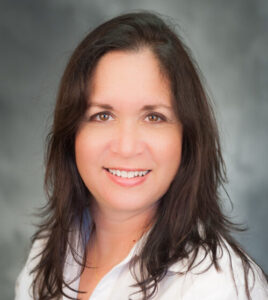Jackie joined UCF CARD in 2019. Her experience extends from the corporate world to the nonprofit, where she has held many hats in her professional career from Proposal Writer to Case Management. She is excited about her newest and most exciting one is in the field of Autism Disorder Specialist with UCF CARD. Jackie’s career changed, soon after her son was diagnosed with Autism. She graduated from Rollins College with a B.A in Psychology and obtained a Master of Jurisprudence in Health Law from Loyola University. She was a NYC Teaching Fellow in the Bronx, where she worked as Bilingual Special Education Teacher-along her Teaching Fellowship she worked on a second master’s in bilingual special education. She is currently completing her Master’s Degree at UCF and working toward her BCBA credential. Jackie is a Certified Employment Specialist, Certified Case Manager, Certified Proposal Writer and a Registered Behavior Tech (RBT). Jackie enjoys spending time with her family, friends, crafting, meditation and continued education.

Teresa Daly, Ph.D.
Director
Dr. Daly received her Ph.D. in Developmental Psychology with specialization in developmental disabilities from the University of Massachusetts at Amherst. She started her 25+ years of experience serving individuals with autism spectrum disorders as an assistant in an inclusive preschool program. Prior to joining UCF CARD, she was Director of Training at Emory University Autism Center. While at Emory, she was Program Director of the nationally recognized Walden Toddler Program, an inclusive model demonstration program for the treatment of toddlers with autism. She is a licensed psychologist and board certified Behavior Analyst, and has served as consultant to NEC-TAC on best practices for ASD. She has been the recipient of multiple grants from agencies that include Autism Speaks, Georgia Childcare Council, the Parker Family Foundation and Department of Education. She presents locally, nationally and internationally on topics related to ASD, Incidental Teaching, and Early Intervention in ASD. She teaches future speech language pathologists at UCF. Her research and training interests include incidental teaching, social interaction, and early intervention. She enjoys reading mystery and crime novels, and spending time with her family.

